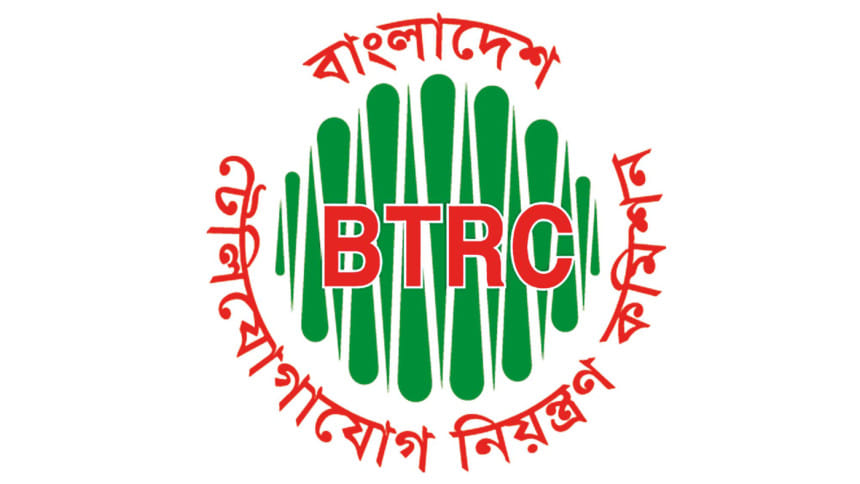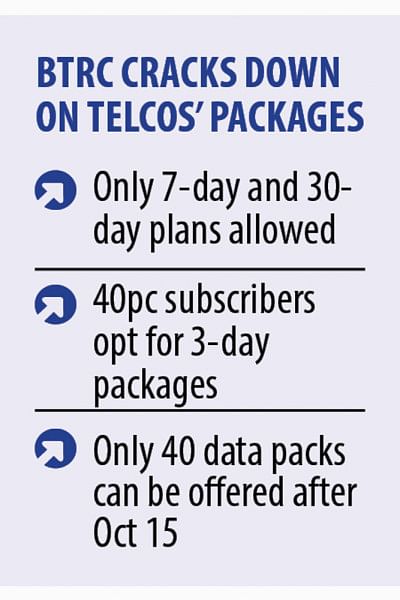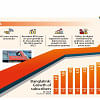No more 3-day data packs from Oct 15


At a time when the government is pressing full steam ahead with the 'Smart Bangladesh' agenda, the telecom regulator is taking measures that are at odds with it.
On September 3, the Bangladesh Telecommunication Regulatory Commission ordered the mobile operators to discontinue three-day and 15-day data packages from October 15, in a move that stakeholders, experts and consumer rights organisations say restricts the freedom of choice.
The move will particularly hit the pockets of the grassroots, low-income and youth segments and is primed to reduce their consumption of telecom services, particularly the internet.
The operators have also been directed to limit the total number of packages they offer to 40. At present, operators offer up to 95 packages to subscribers, whose duration ranges from an hour to an indefinite period.
From October 15, mobile users will have the option to buy data plans for seven days or 30 days. The option to purchase plans with unlimited validity will remain, too.
The BTRC said it arrived at the decision by surveying mobile users, who were in favour of condensing the volume of packages on offer.
The mobile operators maintain that the BTRC survey contained leading questions that influenced the respondents' answers by suggesting responses.
Telecom Minister Mustafa Jabbar has long been expressing his annoyance over the sheer number of packages offered by the carriers.
"Earlier, they would offer 300 packages. Now they are offering 95 packages. Is it possible for customers to choose from 95 packages and remember those? This takes the level of people's confusion to extreme heights. So, we are cutting it down to 40," he told The Daily Star.
When asked if the move curbs the freedom of choice, he said: "With this, a new system is being introduced to break the autocratic attitude of operators who have been bombarding customers with a web of plans."
Curiously, at the programme on May 30 where the BTRC survey result was shared, many of the customers who spoke said they wanted more packages, particularly targeted for OTT media consumption and students.

Subsequently, the operators vehemently opposed the impending BTRC move and said it is not reasonable "in a world where consumer preference for options is vast and wide-ranging".
"Every product that operators offer is based on an analysis of the diverse demands of the consumers from various demographics," said the Association of Mobile Telecom Operators of Bangladesh (Amtob), the trade body for carriers, in a letter to BTRC on August 7.
The synergy between market offerings and customer demand may be broken if there are any abrupt changes made to the offer modalities as a result of frequent regulatory interventions.
Just in March 2022, the BTRC ordered operators to bring down the number of packages to 95 from a few hundred packages each.
Subsequently, Amtob urged the telecom regulator to reconsider its proposed changes, which will have "grave consequences on the industry".
But the BTRC went ahead and issued the directive on Sunday. Discontinuing the three-day packs, it seems, is the more polemic among the directives.
A large segment of grassroots people use data for entertainment and other purposes besides connectivity, said TIM Nurul Kabir, a former secretary general of Amtob.
And they mostly opt for the affordable three-day packs.
"If the option to purchase data for a short time with lower expenditure is eliminated, it will be very inconvenient for them. Customers should always have flexibility in choosing options, and denying this would be unjustified," he added.
Asked if the customers who avail three-day packages now will have to spend more for the minimum seven-day plans, AKM Habibur Rahman, managing director of Teletalk, said: "Undoubtedly -- it is not possible to offer the seven-day packages at the same rate as the three-day ones."
As much as 48 percent of Banglalink's 4.2 crore-odd customers regularly purchase the three-day packs and just 3 percent avail of the 15-day plans, according to Taimur Rahman, its chief corporate and regulatory affairs officer.
"Discontinuing the three-day packs will have a huge impact on customers, specifically those who have a limited budget," he added.
Similarly, Robi, the second-largest carrier with 5.7 crore users, has the highest number of takers for its three-day packages: 50 percent of the recharges come from it, while 7 percent come from 15-day plans.
There are more than 11 crore unique mobile subscribers, who have a wide array of demands and requirements, said Shahed Alam, head of regulatory affairs at Robi. Meeting these demands with a mere 40 packages poses a significant challenge for the operators.
"This decision is poised to have a detrimental impact on customers' ability to select the packages that best suit their preferences and the overall cost of their mobile phone usage."
Furthermore, discontinuing the three-day packages will disproportionately affect students and individuals with limited data needs.
"The decision lacks a foundation in data or research conducted by the telecom regulator, and the findings, if any, were inconclusive," Alam added.
Subscribers more often than not fail to use up the data in the three-day packages, said BTRC Chairman Shyam Sunder Sikder.
"There is an option for customers to carry forward their unused data if they purchase the same package. But many customers were unaware of this and are ultimately deprived."
So the telecom operator is doing away with the three-day packages, he added.
"We are currently assessing the regulatory move," said Hossain Sadat, spokesman of Grameenphone, the market leader with 8.2 crore subscribers as of July.
The regulator can fix the number of packages an operator can offer to reduce customer confusion of customers, but setting the durations of packages is too much regulation, said Ghulam Rahman, president of Consumers Association of Bangladesh.
"It should be set by operators based on their customers' needs," he added.
A regulatory authority should seek the opinions of stakeholders -- operators and customers -- and conduct a thorough survey before making such an important decision that will undoubtedly affect millions of people, said Shahdeen Malik, an eminent jurist and a constitutional expert.
"It would be tantamount to incompetence if a regulator conducts an online survey with only 550 participants for this. I would say it is a misuse of power by a regulatory authority."
Furthermore, if the revenue of mobile companies, one of the biggest sources of government revenue, were to decline, it would have significant implications for public finances.
"It's not that I want the operators' revenue to increase, but from a national standpoint, their revenue is important for the government, especially considering current budgetary constraints," Malik added.

 For all latest news, follow The Daily Star's Google News channel.
For all latest news, follow The Daily Star's Google News channel. 









Comments